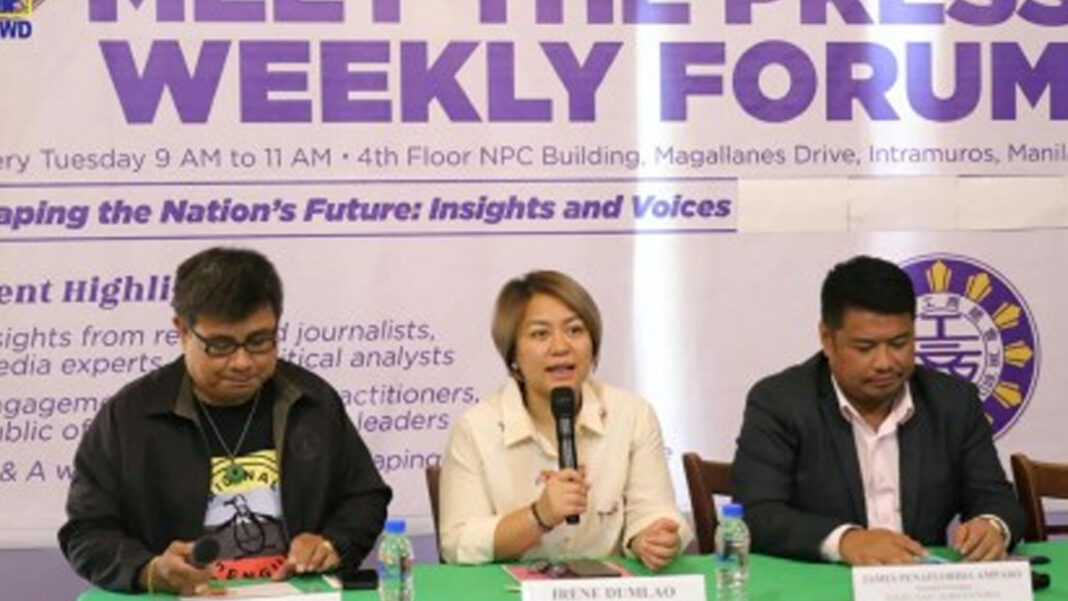In line with the directive of President Ferdinand R. Marcos Jr. to ensure that all Filipinos affected by disasters will never get hungry, the Department of Social Welfare and Development (DSWD) continues to strengthen its relief supply chains and logistic capabilities through the “Buong Bansa Handa” (BBH) Program.
“Alam naman po natin na ang bansang Pilipinas ay number one in the World Risk Index dahil very prone po ito sa mga iba’t-ibang disasters and calamities. And with the threats of climate change na-exacerbate po o mas pinapalala ‘yung mga disasters na kinakaharap ng ating bansa, kagaya ng mga bagyo … kaya nga po ang DSWD ay mas pinaigting po ang disaster response efforts nito (We all know that the Philippines is number one in the World’s Risk Index because it is very prone to various disasters and calamities. The disasters faced by the country have also been exacerbated by the threats of climate change. That’s why the DSWD has intensified its disaster response efforts),” Assistant Secretary Irene Dumlao of the DSWD’s Disaster Response Management Group said during the National Press Club’s Meet the Press forum in Intramuros, Manila on Tuesday.
Dumlao said the BBH utilizes two parallel supply chain mechanisms for disaster preparedness and response.
The first features a national and local government-driven supply chain that aims to increase the production capacities and processes of the agency’s National Resource Operations Center in Pasay City, the Visayas Disaster Resource Center in Cebu, and the warehouse and storage facilities across all DSWD Field Offices.
For the second mechanism, Dumlao said the DSWD forged partnerships through framework agreements with established large and small groceries, supermarkets, manufacturers, and distributors to leverage on their technical expertise and resources to create a private sector-driven supply chain.
“Last year kung maaalala ninyo, sunod-sunod na typhoons…anim na bagyo po ‘yan. Napakalaking tulong ng Buong Bansa Handa (Entire Nation Ready) program sapagkat madali natin naipaparating ang kinakailangang tulong sa mga kababayan natin. We were able to respond to request of various local governments para madagdagan ‘yung kanilang paghahatid ng tulong sa kanilang mga (Last year, we were affected by six successive typhoons. Through the Buong Bansa Handa Program, we were able immediately deliver the needed assistance to our compatriots. We were able to respond to the requests of various local governments for additional assistance for their) constituents,” she said.
The DSWD currently maintains over three million boxes of family food packs across the country that can be immediately distributed to local government units that will be affected by disasters or emergencies.
Another innovation shared by the DSWD spokesperson is the prepositioning of ready-to-eat-food (RTEF) boxes in port areas before a disaster strikes.
This was made possible after the DSWD and the Philippine Ports Authority entered into an agreement on June 27 to make RTEF packs available in seaports nationwide.
Dumao said the collaboration will result in a faster and more efficient relief response when disasters strike and passengers get stranded in ports due to sea transport disruptions.
“Hindi mo na iisipin kung ano ang kakainin mo o ano ang gagamitin mo for the day that you are inside the port sapagkat, mayroon na rin po kaming (You won’t be worrying about what you will eat for the day you are inside the port because we now have) ready-to-eat food packs,” she said.
An RTEF box contains five cans of tuna paella, one can of chicken pastil, one can of giniling, two packs of arroz caldo, three packs of champorado, two protein biscuits, and one complementary food for infants. It can feed up to a family of five for a whole day.
The DSWD has, so far, produced 120,000 boxes of RTEF, up for prepositioning not only in seaports, but also in other agency warehouses and storing facilities nationwide for distribution to disaster areas, as necessary. (PNA)


